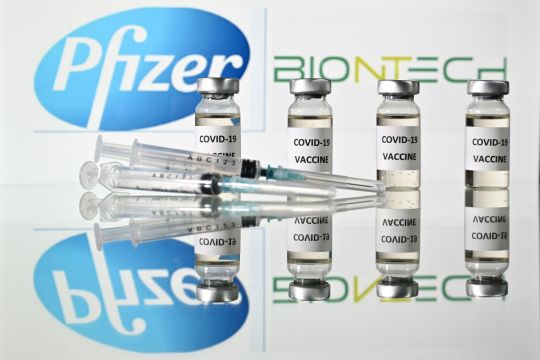The European Medicines Agency said the maximum interval of 42 days between the first and the second dose of the Pfizer-BioNTech vaccine should be respected to obtain full protection.
Evidence of the vaccine efficacy is based on a study where administration of doses was done 19 to 42 days apart, the agency said, noting that full protection comes only seven days after the booster.
It added: “Any change to this would require a variation to the marketing authorisation as well as more clinical data to support such a change, otherwise it would be considered as 'off label use'.”
Off label use entails lower liabilities on vaccine makers.
The comes after The Irish Times reported that the Irish Government plans to examine if the time between the two required doses could be extended in order to accelerate the roll-out, as is being done in the UK.
Prof Brian MacCraith, chair of the State’s Covid vaccine taskforce, said the issue of increasing the gap between vaccine doses had been discussed by the group in recent days.
“On foot of our discussions, a formal request has been issued from [chief medical officer Dr Tony Holohan] to request [the National Immunisation Advisory Committee, NIAC] explore the issue and provide some guidance on the matter.
“Given that we want to be as ambitious and effective as possible, and given the backdrop of rapidly rising numbers and our prioritised focus on the vulnerable in nursing homes and frontline healthcare workers, we have to consider all options,” he said.
Prof Karina Butler, the chair of the NIAC, told The Irish Times she was contacting counterparts in Europe and the UK to seek more data, which would have to support any recommendation or guidance on the matter.

“Current recommendations are based on the trial results where two doses 21 days apart were scheduled. The question is whether that gap could be lengthened to 28 days, as was used in the Moderna trial, or even longer, possibly six or 12 weeks.”
She said any decision would depend on what the data indicates, and would not “pre-empt” the process.
If such a step were taken, it could get the vaccine to more people more quickly.
The UK move has attracted criticism, and any similar move by Ireland would need regulatory approval, Prof Butler said, adding that those who have received their first dose would not be impacted.







